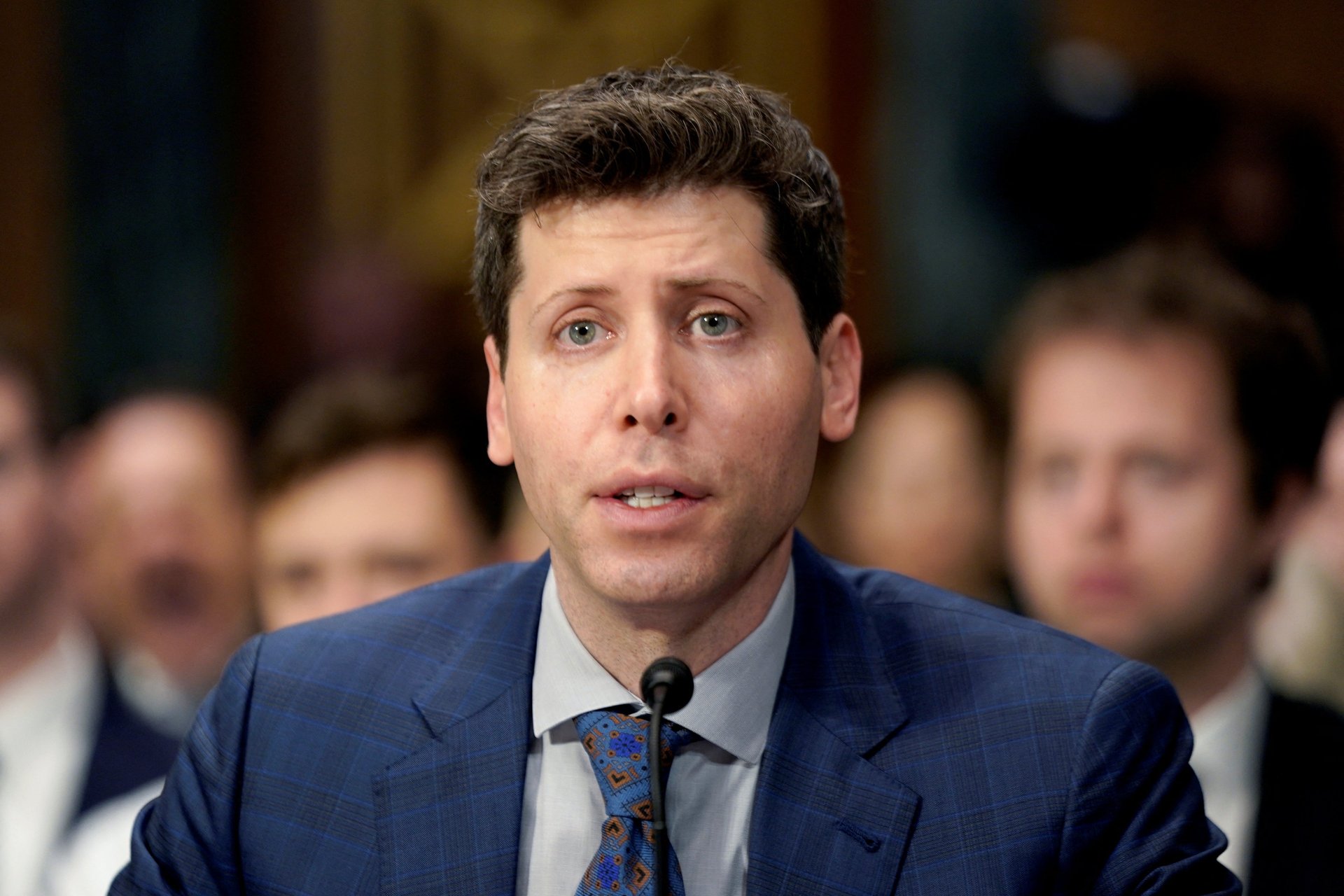Sam Altman's biometrics-based cryptocurrency Worldcoin is now live
The platform aims to "distinguish humans from AI" through what it calls a "proof of personhood"

OpenAI CEO Sam Altman launched the Worldcoin cryptocurrency today (July 24), promising to provide a tool to “distinguish humans from AI,” tackle online identity challenges, and solve income inequality.
Suggested Reading
Worldcoin is unique among cryptocurrencies for using a proof of personhood (also known as PoP) credential issued by a custom biometric imaging device called the Orb. The device features a wide angle camera and a telephoto camera that capture a high resolution image of the human iris, and process it into a unique digital identifier.
Related Content
The cryptocurrency has been under testing in countries such as Chile, Norway, Indonesia, Kenya, Sudan, and Ghana for the past three years. By the end of the year, Worldcoin expects to make 1,500 orbs available in 35 cities across 20 countries to continue onboarding new users for free. Worldcoin has recorded over 2 million registrations since it started doing beta tests, with 40,000 individuals signing up for a verified World ID every week.
After listing in several crypto exchanges on Monday, Worldcoin’s (WLD) token surged as high as 98%, hitting a price of $3.30 per coin, from $1.66 with a trading volume of $239 million, according to Coingecko data.
Worldcoin’s UBI opportunity
In a press statement, Altman and Worldcoin co-founder Alex Blania touted the coin as a tool to enable global democratic processes, and eventually show a potential path to AI-funded universal basic income (UBI). “Worldcoin consists of a privacy-preserving digital identity (World ID) and, where laws allow, a digital currency (WLD) received simply for being human,” the duo said.
Altman has long been an advocate of universal basic income as a way to tackle income inequality. He believes that Worldcoin could help eliminate fraud if governments decide to adopt it in distributing UBI to their citizens. “Worldcoin is an attempt at global scale alignment, the journey will be challenging and the outcome is uncertain. But finding new ways to broadly share the coming technological prosperity is a critical challenge of our time,” the statement by Altman and Blania said.
In May, Worldcoin launched the World App, a crypto wallet designed by the research lab and tech product development company Tools for Humanity (TFH), based in Denver, Colorado and co-founded by Altman and Blania.
The app runs on Ethereum’s Polygon blockchain protocol and presents users with an opportunity to access Polygon-based versions of cryptos like bitcoin, ether, and stablecoins such as the USD-pegged DAI token. However, World App remains limited as a crypto wallet as it was designed purposefully to enable the functionalities of Worldcoin. Volunteers were initially paid in bitcoin.
A fraud-proof digital passport?
As the online world gets increasingly populated with bots, the iris-based unique ID generated by Worldcoin’s Orb is meant to distinguish unique individuals from online AI chatbots and prevent fraud.
The platform effectively offers a solution to a problem Altman’s OpenAI, the creator of ChatGPT helped create, as OpenAI’s paid-for ChatGPT API (application programming interface) has been used by developers to create human-like AI bots across the web.
Altman appears aware of AI development’s catch-22 and he claims to be on a mission to shape AI regulation across the world. In May, he even called upon Congress to regulate AI as the technology could cause harm to the world if allowed to spiral out of control and last week OpenAI committed to a White House-brokered safety pledge.
By focusing on biometrics as a proof of personhood, Altman is wading into another controversial field. Worldcoin is likely to face scrutiny as to how the data has been collected and processed so far, whether it can be safe from hackers in the future, and whether it can truly be fraud-proof—a black market for iris scans has reportedly already flourished.